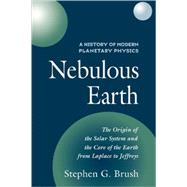
Note: Supplemental materials are not guaranteed with Rental or Used book purchases.
Purchase Benefits
Looking to rent a book? Rent A History of Modern Planetary Physics: Nebulous Earth [ISBN: 9780521093217] for the semester, quarter, and short term or search our site for other textbooks by Stephen G. Brush. Renting a textbook can save you up to 90% from the cost of buying.
| Preface | |
| Nebular Birth and Heat Death | |
| Introduction | |
| The Founders: Laplace and Herschel | |
| Followers and critics | |
| The Nebular Hypothesis and the evolutionary worldview | |
| Thermodynamics and the cooling Earth | |
| Saturn's rings | |
| Revisions of the Nebular Hypothesis, 1860-1885 | |
| Poincare and cosmic evolution | |
| The Nebular Hypothesis in the 20th century | |
| Inside the Earth | |
| A journey to the center of the Earth | |
| Nineteenth-century debates: Solid, liquid or gas? | |
| Discovery of the Earth's core | |
| Chemical history of the core | |
| Geomagnetic secular variation | |
| Time and tide | |
| Index | |
| Table of Contents provided by Publisher. All Rights Reserved. |
The New copy of this book will include any supplemental materials advertised. Please check the title of the book to determine if it should include any access cards, study guides, lab manuals, CDs, etc.
The Used, Rental and eBook copies of this book are not guaranteed to include any supplemental materials. Typically, only the book itself is included. This is true even if the title states it includes any access cards, study guides, lab manuals, CDs, etc.